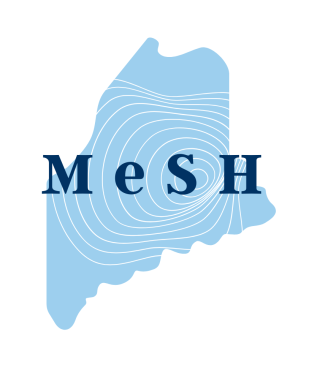Sustainable Forestry Resources
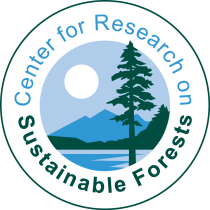 Center for Research on Sustainable Forests (CRSF)
Center for Research on Sustainable Forests (CRSF)
The CRSF utilizes emerging technologies to address current and future natural resource issues, particularly those related to northern forest ecosystems and the Maine forestry industry. For more information about the CRSF, please contact 207-581-3794 or crsf@maine.edu.
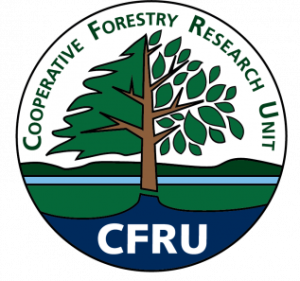 Cooperative Forestry Research Unit
Cooperative Forestry Research Unit
The CFRU conducts research related to forestry practices and resources to inform both industry professionals and policymakers. The unit maintains an explorable research map, hosts workshops, and holds regular meetings. For more information about the CFRU, contact 207-581-2893 or cfru@maine.edu.
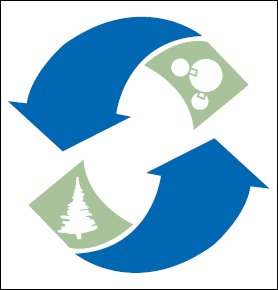 Forest Bioproducts Research Institute (FBRI)
Forest Bioproducts Research Institute (FBRI)
The FBRI works to advance forest-based technologies, supporting regional forest businesses, and developing sustainable forest bioproducts. For more information, please contact 207-581-1489 or fbri@maine.edu. The FBRI also maintains a Facebook (UMaineForestBioproducts) account.
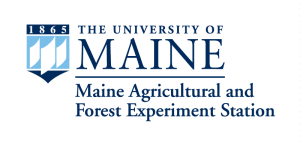 Maine Agricultural and Forest Experiment Station
Maine Agricultural and Forest Experiment Station
The Maine Agricultural and Forest Experiment Station is a center run by the College of Natural Sciences, Forestry, and Agriculture that conducts research related to natural resource profitability and sustainability in Maine. The website has an interactive map with past and present research projects. For more information, please contact 207-581-3205 or um.nsfaresearch@maine.edu.
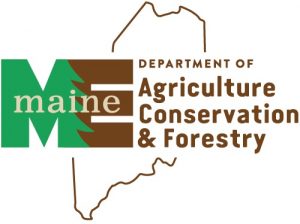 Maine Department of Agriculture, Conservation, and Forestry (DACF)
Maine Department of Agriculture, Conservation, and Forestry (DACF)
The forestry page of Maine’s DACF website contains links to information about various recreational, scientific, economic, and management aspects of Maine’s forests. Some resources cover topics such as where and how to enjoy Maine’s natural areas, personal land management, invasive species, regulations, and fire safety.
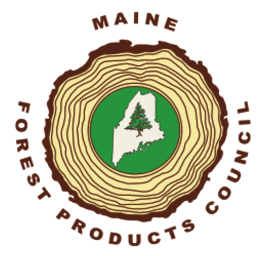 Maine Forest Products Council
Maine Forest Products Council
The MFPC has been working to represent the diverse needs of Maine’s forest economy since 1961. It is committed to maintaining Maine’s woods as a viable, sustainable resource. Members come from many fields including loggers, landowners, truckers, paper mills, tree farmers, foresters, lumber processors, bankers, lawyers, and insurance executives. The Council gathers information, hosting events, gathering people to discuss important issues, conducting tours, and representing various groups at legislative events in Maine, Washington D.C., and across the country.
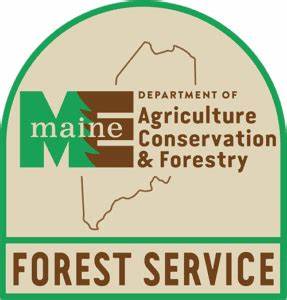 Maine Forest Service
Maine Forest Service
The Maine Forest Service is a subset of Maine’s Department of Agriculture, Conservation, and Forestry which works to protect and enhance Maine’s forest resources for current and future generations. In their management role related to forest resources, the MFS develops, advocates for, and promotes activities that promote long term responsible management, protect resources from fire, invasive species, misuse, and disease, and provide accurate, relevant, and current information to professionals and the public. Information about events, news, and relevant programs can be found on their website.
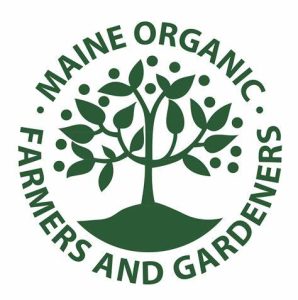 Maine Organic Farmers and Gardeners Association (MOFGA)
Maine Organic Farmers and Gardeners Association (MOFGA)
MOFGA works to promote organic agriculture through education, training, and advocacy. Their goal is to create a food system that is healthy and fair for everyone. While forestry and tree crops are not their primary focus, MOFGA does have several resources related to important topics such as low impact forestry techniques, local forest products economic impacts, climate mitigation, invasive species, and forest management planning.
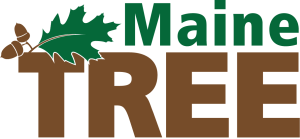 Maine Timber Research and Environmental Education (Maine TREE)
Maine Timber Research and Environmental Education (Maine TREE)
Maine TREE was founded by timberland owners, forest product producers, tree farmers, and other people involved in forestry to educate and advocate for the sustainable use of forests and maintain the ecological, social, and economic health of Maine’s forest community. They pursue their mission through research and education programs for schools, government, media, and the public. Maine TREE works to support Maine’s healthy forest systems, forest professionals, science based forest management, and public policies that sustain forest dependent people and communities.
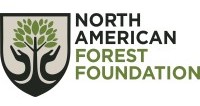 North American Forest Foundation
North American Forest Foundation
The mission of the North American Forestry Foundation (NAFF) is to support the forest products industry through education, promotion, and advocacy. NAFF develops and sponsors educational programs, promotes sustainable forest products, and advocates for renewable forest resources. There are numerous free forestry education resources for parents, teachers, community groups, and the general public on their website. There is also information about forestry products harvesting, construction, and sustainability.
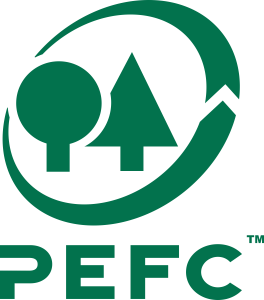 Programme for the Endorsement of Forest Certification (PEFC)
Programme for the Endorsement of Forest Certification (PEFC)
The PEFC is a non-profit, non-governmental global alliance of national forest certification systems based in Switzerland. It works to promote sustainable forest management through independent third-party certification. By endorsing national and regional forest certification systems, the PEFC is able to take local conditions and needs into account. The certification allows forest owners to demonstrate their sustainable practices and empowers consumers to purchase sustainably. Information about standards and compliance, how to get a PEFC certification, and how to find PEFC certified products can be found on their website. Products with the PEFC label originate from certified forests which are managed with environmentally, socially, and economically sustainable practices.
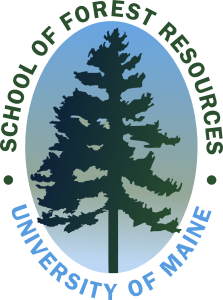 School of Forest Resources
School of Forest Resources
UMaine’s School of Forest Resources works to embody excellence in education, research, and public service that promotes the understanding, efficient use, and sustainable management of forest resources. The SFR offers several forestry degree programs for both graduate and undergraduate students and conducts forestry related research. For more information about related programs, courses, research facilities, events, and other activities, visit their website.
 The State of America’s Forests
The State of America’s Forests
The State of American Forests in an online interactive guide with several graphs and maps which help to illustrate the many benefits that forests provide, understand current challenges to these resources, and learn about forest management and conservation. Forests have many environmental, ecological, recreational, and economic benefits which are influenced by many factors that affect forest health such as disease, land management, and climate change. This website illustrates the water health, carbon sequestration, recreational activities, biodiversity and wildlife, forest products and services, and economic benefits and value of forests. It also has information about various threats such as fires, invasive species, insects and disease, declining species and biodiversity, drought, forest fragmentation, and land development. Another section contains resources about responsible and sustainable forest stewardship for both public and private lands.
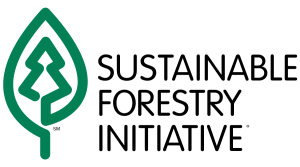 Sustainable Forestry Initiative
Sustainable Forestry Initiative
The SFI is a non-profit which works to advance sustainability and address local and global sustainability issues through forest focused collaboration and networking. Consumer products with SFI labels are created with sustainably sourced and/or recycled materials. The SFI also participates in, and supports various conservation projects, grants, and research. It engages with many different groups and communities to address local needs, educate the public, and support young professionals. There is a separate website for SFI’s Maine branch.
 SWIFT – Supporting Women and Gender Minorities in Forestry
SWIFT – Supporting Women and Gender Minorities in Forestry
SWIFT is a group of women, non-binary people, and allies involved in the University of Maine’s School of Forest Resources and the Department of Wildlife, Fisheries, and Conservation Biology which works to advance opportunities for women and gender minorities in the field of forestry. They host practical solution-based informational meetings to foster a community atmosphere to encourage success.
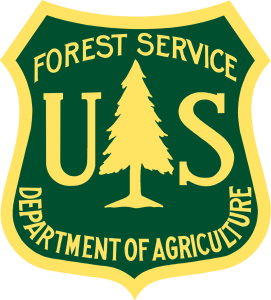 USDA Forest Service
USDA Forest Service
The mission of the U.S. Forest Service is to sustain the health, diversity, and productivity of the nation’s forests and grasslands to meet the needs of current and future generations. It works to preserve shared resources, assist with and lead programs which improve recreation, ecological health, and sustainability, educate the public and landowners about vital issues, and conduct important research about forestry. More information about Forest Service resources and how to get involved, please visit their website.
 U.S. Endowment for Forestry & Communities
U.S. Endowment for Forestry & Communities
The U.S. Endowment for Forestry & Communities is committed to supporting working forests and advancing family wage jobs in forested rural communities. They support research and development of traditional forest products through strategic investments, ensuring that forest-based markets grow and thrive. The EFC works with the U.S, Departments of Defense and Agriculture, Economic Development Administration, EPA, and Forest Service.

